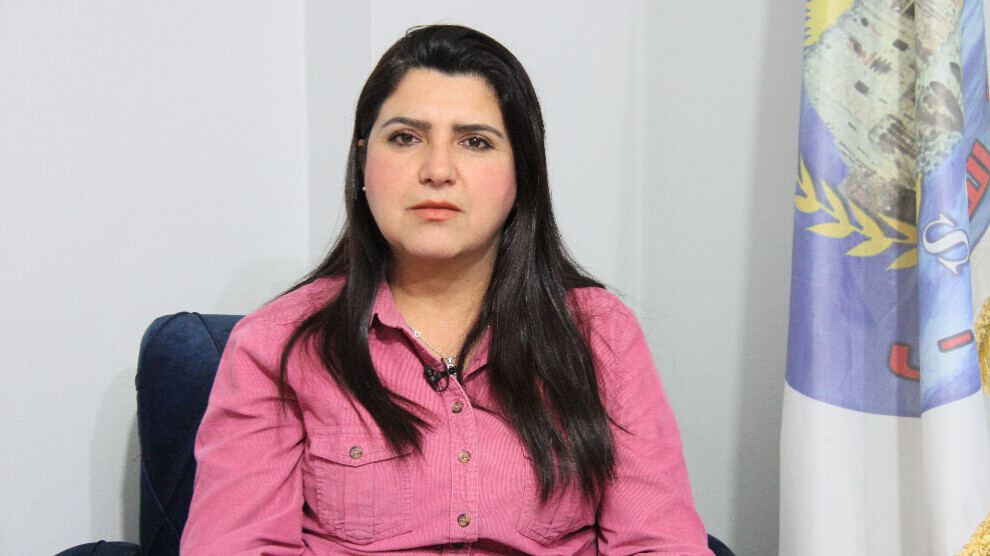Work resumes in Sheikh Maqsoud and Ashrafiyah people's councils
Co-chair Emîne Beyram said that municipal services in Sheikh Maqsoud and Ashrafiyah have resumed after the removal of checkpoints under Article 5 of the agreement.
Co-chair Emîne Beyram said that municipal services in Sheikh Maqsoud and Ashrafiyah have resumed after the removal of checkpoints under Article 5 of the agreement.

Sheikh Maqsoud (Şêxmeqsûd) and Ashrafiyah were among the areas that suffered significant destruction before the Rojava Revolution. These neighborhoods became centers of resistance as the spark of the revolution spread. When the Syrian revolution devolved into conflict and a struggle for power, Sheikh Maqsoud and Ashrafiyah endured intense battles and numerous hardships. Starting in 2016, these neighborhoods came under attack by mercenaries affiliated with the Turkish state. In response, fighters from the People's Protection Units (YPG) and the Women's Protection Units (YPJ), alongside the local population, mounted a fierce resistance. The name Sheikh Maqsoud was etched into history through that defiance.
This war is known as one of the most difficult battles experienced in the regions of Northern and Eastern Syria. The neighborhood suffered immense damage, and a large portion of its buildings were destroyed. In the midst of this destruction, the people organized themselves with great dedication and established their own institutions. One of these institutions was the People's Municipality. However, the neighborhood remained under siege by armed groups for a long time, and later, the Baath regime continued the same policies. Since the entry of essential materials and equipment was blocked, municipal services could only be carried out to meet the most urgent needs.
An embargo was imposed on the two neighborhoods
Emîne Beyram, co-chair of the People's Municipality in the Sheikh Maqsoud and Ashrafiyah neighborhoods, shared information about the municipal work being carried out in both areas.
Emîne Beyram noted that Syria has been facing war and conflict for the past 13 years and added: "The Rojava Revolution also began during this period. At that time, the municipalities of Sheikh Maqsoud and Ashrafiyah were organized just like the other institutions in the neighborhood. Municipal services faced immense difficulties and were carried out with very limited resources. This situation is the result of a 13-year-long siege and the heavy embargo imposed on the neighborhoods. It created a serious obstacle to repairing damaged structures and rebuilding the destroyed areas, as the necessary materials could not be delivered to the neighborhoods. As a result, we were forced to limit our work to emergency services. In addition, Sheikh Maqsoud and Ashrafiyah have never been treated like the other neighborhoods of Aleppo. There has always been a form of discrimination."
Emîne Beyram also referred to the agreement reached between the co-chairs of the Sheikh Maqsoud and Ashrafiyah neighborhoods and the Damascus government and continued: "Article 5 of the agreement between the co-chairs and the Damascus government concerned municipal services. With this article, the checkpoints were removed. This was one of the first steps taken to implement the agreement in practice. The aim is to ensure that Sheikh Maqsoud and Ashrafiyah are recognized for their role in industry and trade, to create space for the people, and to allow them to carry out their work more freely.
Based on this, the Aleppo central municipality has undertaken this responsibility in coordination with the neighborhood municipality. According to the agreement, the municipality of Sheikh Maqsoud and Ashrafiyah will be represented within the Aleppo central municipality through a committee. In this way, Sheikh Maqsoud and Ashrafiyah will be able to use their own resources in the reconstruction process, just like the other neighborhoods. This step is important in order to prevent the difficulties experienced in the past from happening again. However, the system we have built will remain unchanged and will continue as it is, because these neighborhoods have a unique situation."